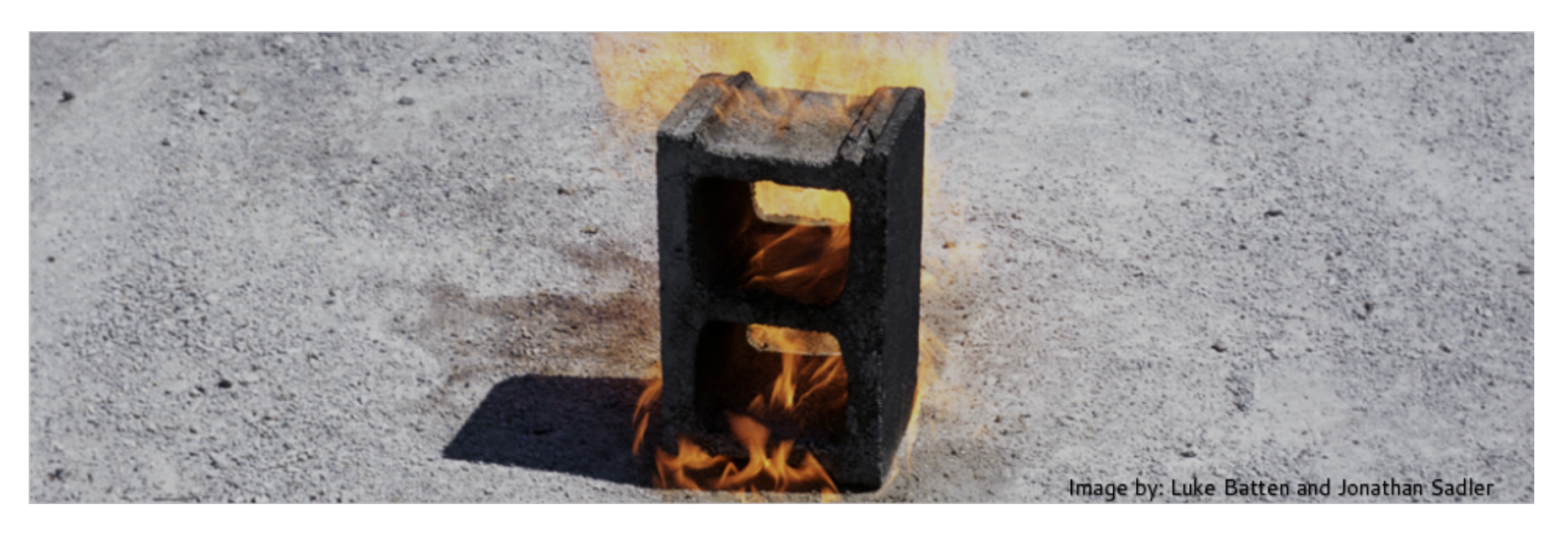I write this late, six months so. Ben Lerner, the acclaimed poet, novelist, and critic, visited UIUC as part of the Greenfield Lynch Lecture series on April 4th, 2024, and although the lecture was a half year ago, although so much has changed, or not much has changed at all, I can’t get it out of my head.
Lerner’s reading from his new poetry collection, The Lights, was as impressive as advertised. But perhaps even more impressive than the extraordinary––and extraordinarily well-decorated––poems were the poet-novelist’s answers to Dr. Brett Kaplan’s probing questions. He seemed inexhaustibly erudite on a number of topics, speaking in wry paragraphs on poetic history, the political-cultural moment, Walter Benjamin, and Derrida. But what was perhaps most interesting was his answer to Dr. Kaplan’s question about how Jewishness functions in his work.
Considering the other novelists the series has brought in, Lerner’s invitation is maybe surprising. His work is of course political––he takes on topics like Occupy Wall Street, climate change, and Trump––and so is befitting of its co-sponsor, The Initiative in Holocaust, Genocide, and Memory Studies, but he sits in a somewhat uneasy relationship with the lecture’s other co-sponsor, The Program in Jewish Culture & Society. That is, he was ostensibly invited in his capacity as a major Jewish-American writer, but Lerner, unlike previous Greenfield Lynch lecturers such as Nicole Krauss, doesn’t claim the mantle. In response to Dr. Kaplan’s question he said, he is empirically a Jewish-American who is also a writer, and he is someone whose intellectual and literary formation was rooted in Jewish literature and thought (though also by decidedly anti-Jewish literature and thought––see French and British modernism). But he nevertheless equivocated as to whether he sees himself as a Jewish-American writer.
This is fitting of the work too. His first three poetry collections are in the lineage of Ashberry or language poets like Robert Creeley and CD Wright––playful, elliptical, and often abstract. His first two novels have Adam Gordon (or, in 10:04, an unnamed writer who shares an awful lot of biographical characteristics with both Gordon and Lerner) functioning more as eminently criticizable white guy than Jew. In Leaving the Atocha Station, Gordon is an over-educated American abroad, and in 10:04, the nameless narrator’s defining features are that he is a New Yorker and a novelist. Maybe he’s Jewishly coded, but he’s never named Jew.
But Lerner’s more recent work, especially The Lights, sees Lerner confronting Jewishness more directly. Take “The Chorus,” the prose poem he read at the lecture, which begins, “As the only Jew in the class, it fell to me to introduce the single Hanukkah song included in the annual winter concert at Randolph Elementary…” It features a bevy of classic Jewish-American literary themes, including otherness, the feminized father, the patriarchal family tree, and the pitcher’s mound––that Rothian symbol of American assimilation––as bema. This recent pivot also applies to The Topeka School, which primarily takes place in Gordon, and Lerner’s, hometown of Topeka, Kansas, which, unlike the New York of 10:04, is hardly a bastion of American Jewry. And yet in his most recent novel we meet a Holocaust survivor, hear about a number of anti-Semitic incidents, and catch a glimpse of what American Jewish life is like on the blood red plains.
What can we chalk this up to? Fatherhood? Aging? The tenor of the times? I’ll try to avoid psychologizing this child of psychologists. Rather, I’d argue that Lerner’s claim that he is empirically a Jewish-American and a writer, and yet not a Jewish-American writer, is as much of a strategic artistic position as it is some kind of byproduct of third generation assimilationism. By never stamping Adam Gordon with the triple parentheses, he can still function as a kind of white Everyman. That is, it’s a kind of productive equivocation. Though “The Chorus” closes on the line “you have to choose,” what if Lerner doesn’t? What if Adam Gordon and Lerner’s poetic “I” are both Jew (Europe’s oppressed) and white (America’s oppressor)? And what if his literary corpus is all the more interesting for it? Perhaps this is why he can inhabit Darren, Trumpian man-child, in The Topeka School. And perhaps this is why the final poem in The Lights, “No Art,” can take on Adorno’s provocation that there can be no poetry after Auschwitz. As a white Jew who inhabits the in-between, Lerner can be insider-outsider. Perhaps it’s more interesting not to choose.
David Lawrence Miller, UIUC MFA in fiction
You can watch the video here.

